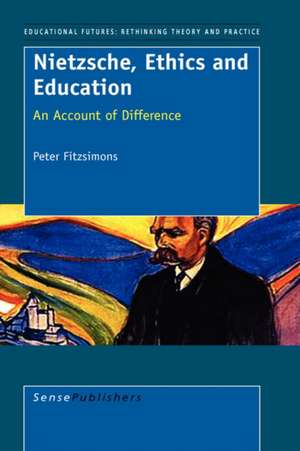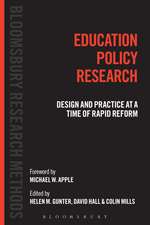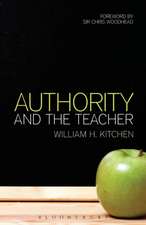Nietzsche, Ethics and Education
Autor Peter Fitzsimonsen Limba Engleză Hardback – 31 mar 2008
| Toate formatele și edițiile | Preț | Express |
|---|---|---|
| Paperback (1) | 400.27 lei 38-44 zile | |
| Brill – 31 dec 2006 | 400.27 lei 38-44 zile | |
| Hardback (1) | 572.81 lei 38-44 zile | |
| Sense Publishers – 31 mar 2008 | 572.81 lei 38-44 zile |
Preț: 572.81 lei
Preț vechi: 707.16 lei
-19% Nou
Puncte Express: 859
Preț estimativ în valută:
109.62€ • 113.80$ • 91.41£
109.62€ • 113.80$ • 91.41£
Carte tipărită la comandă
Livrare economică 18-24 martie
Preluare comenzi: 021 569.72.76
Specificații
ISBN-13: 9789087900465
ISBN-10: 9087900465
Pagini: 196
Dimensiuni: 156 x 234 x 13 mm
Greutate: 0.45 kg
Editura: Sense Publishers
Locul publicării:Netherlands
ISBN-10: 9087900465
Pagini: 196
Dimensiuni: 156 x 234 x 13 mm
Greutate: 0.45 kg
Editura: Sense Publishers
Locul publicării:Netherlands
Descriere
Descriere de la o altă ediție sau format:
Undermining the fundamental place of freedom, equality and universal reason, Nietzsche’s philosophy recognises that we occupy multiple and contradictory subject positions within social life. With no metaphysical realm of reason, no divine inspiration for morality, and no transcendental basis for human essence, we are left with the embodied, reflective and creative self as a source of ethics. From this perspective arises Nietzsche’s Übermensch, a continuous process of overcoming and becoming, interpreted as a metaphor for education that honours difference and incorporates otherness. The book explores the development of Nietzsche’s philosophy and its application to the problems of education, disturbing traditional liberal and democratic accounts of the relationship between individual and society. Threaded throughout is the author’s critique of the way educational institutions are driven by political and economic considerations, explored through notions of autonomy and subjectivity. The book is suitable for graduate students and academics wanting to engage either with postmodern interpretations of ethics in education, or with political philosophy in relation to development of self and community.
Undermining the fundamental place of freedom, equality and universal reason, Nietzsche’s philosophy recognises that we occupy multiple and contradictory subject positions within social life. With no metaphysical realm of reason, no divine inspiration for morality, and no transcendental basis for human essence, we are left with the embodied, reflective and creative self as a source of ethics. From this perspective arises Nietzsche’s Übermensch, a continuous process of overcoming and becoming, interpreted as a metaphor for education that honours difference and incorporates otherness. The book explores the development of Nietzsche’s philosophy and its application to the problems of education, disturbing traditional liberal and democratic accounts of the relationship between individual and society. Threaded throughout is the author’s critique of the way educational institutions are driven by political and economic considerations, explored through notions of autonomy and subjectivity. The book is suitable for graduate students and academics wanting to engage either with postmodern interpretations of ethics in education, or with political philosophy in relation to development of self and community.

















